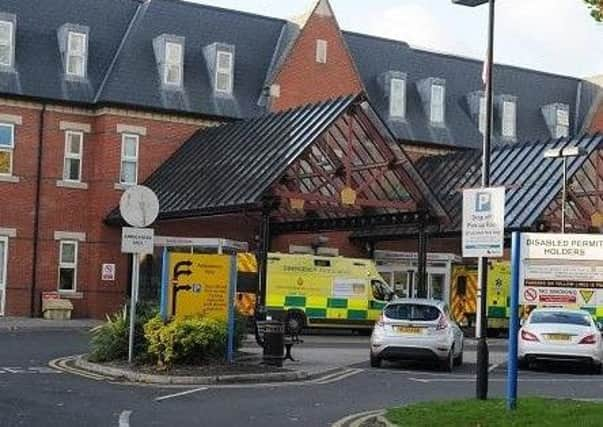Wigan named as one of England's '˜death blackspots'


Health economists have identified a number of areas where people have below average health outcomes and NHS trusts are in deficit.
The Centre for Progressive Policy found age-standardised mortality rates for causes considered avoidable, amenable and preventative are 29 per cent higher in Wigan than in other areas of the country.
Advertisement
Hide AdAdvertisement
Hide AdThe data also identifies 13 ‘crunch zones’ which may not be prepared for aging populations and where social care is currently underfunded, although Wigan is not on this list.
Wigan’s NHS trust has been mired in difficulties over recent years.
The trust is currently embroiled in an increasingly bitter industrial dispute with workers over the creation of an arms-length organisation for some of its staff.
And a report by NHS improvement last week found it had one of the worst accident and emergency waiting times in the country.
Advertisement
Hide AdAdvertisement
Hide AdThe NHS report revealed the NHS provider sector ended the year with a deficit of £960m - £464m above the plan set. WWL expected to have a deficit of £1.53m but actually ended with a surplus of £7.853m.
Of the risk zone report, Dr Sarah Wollaston MP, chair of the Health and Social Care Select Committee, said: “This analysis from the CPP sets out in stark detail the urgent need to plan not just for the scale of future need but to address the impact of current deficits on care.”
Sir Cyril Chantler, Emeritus Chairman UCLPartners Academic Health Science Partnership, said: “This new analysis has shown an alarming trend between hospital pressure and financial deficits and below average health outcomes resulting in the 32 risk zones.
“We must act now to protect those residing in the risk zones and prevent any more from occurring. I look forward to continuing to work with CPP on their research and anticipate their suggestions in how we can truly make the health service both high quality and sustainable.”
Advertisement
Hide AdAdvertisement
Hide AdCharlotte Alldritt, Director of the Centre for Progressive Policy, who emphasises the importance of a long-term strategy and funding settlement for health and social care, said: “The government is under increasing pressure to respond to a health and social care funding crisis.
“But the chronic challenges facing the NHS demand more than a short-term cash injection or another five – or even ten – year strategy.
“A new approach to health and care is needed that can cope with our ageing population, improve joint working between local government, community services and the NHS and take up the opportunities of technology for diagnostics and delivery, and embed health outcomes within a wider, place-based economic and social policy interventions.
“This could imply a radical shift in our expectations of the state – and ourselves as patients and citizens – with huge implications for how we fund and deliver these essential public services.”